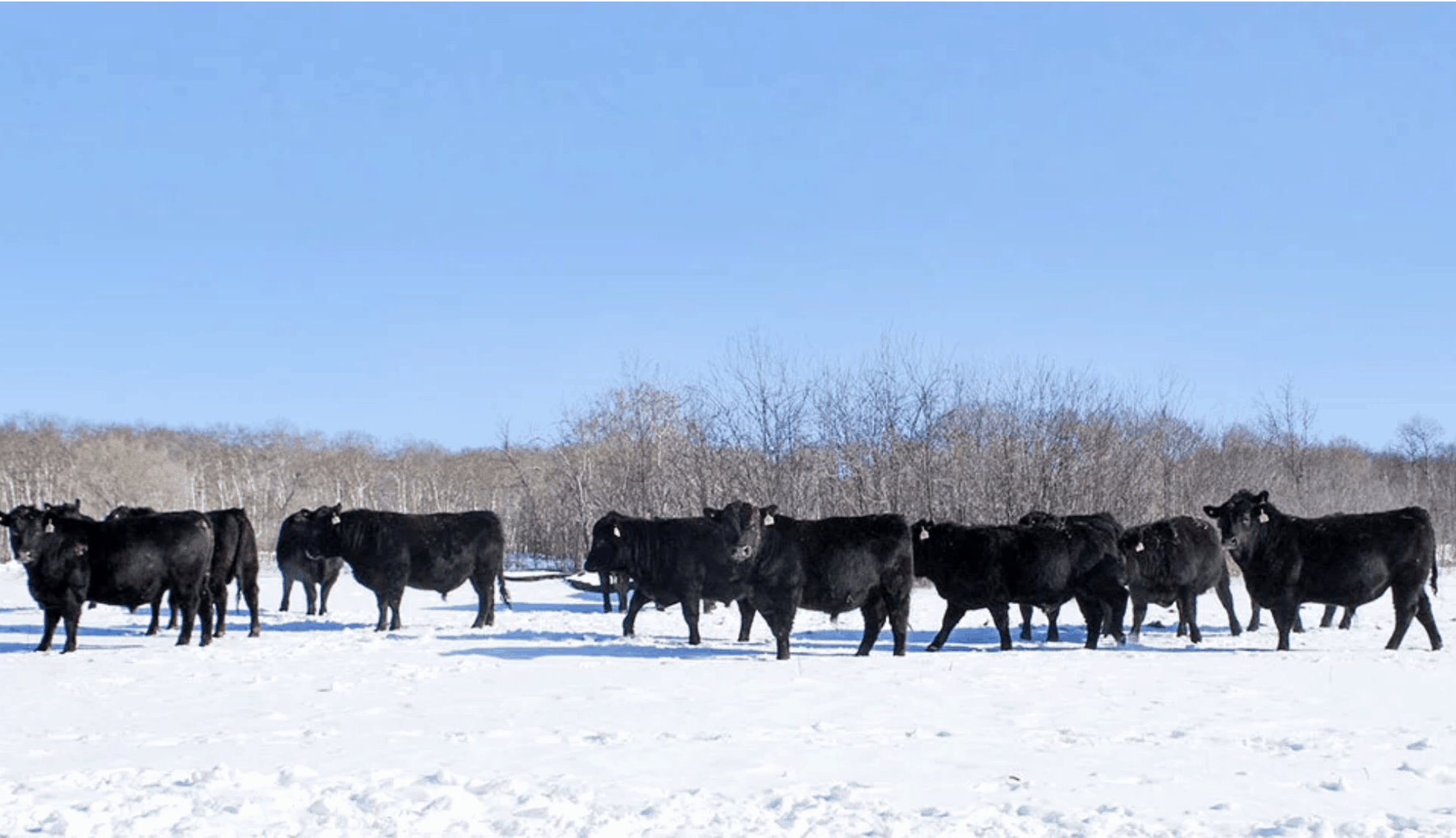
The Boys of Winter
Now that harvest is complete and calves are weaned, attention has turned to the future of the herd – the bred cows. Pregnant cows are entering their third trimester and calving season will soon be upon us.
To maintain an ideal body condition score of 5 or 6, energy demands are increasing, especially as temperatures get colder and winds blow harder.
But, it’s important that we not forget about the boys during these cold winter months. In their “off season”, bulls can often get pushed to the side and not as closely managed as cows, especially during the busyness of calving. Where we live, this unfortunately is also during the colder months of the year when extended exposure to subzero temperatures is possible. This leads to concerns of frostbite and hypothermia. When a mature bull suffers from frostbite, it is likely on the scrotum, affecting their reproductive organs and ultimately their sperm. Depending on the severity of the damage, there can be temporary affects or possible permanent sterility.
According to a study done at North Dakota State University, around 10% of bulls with mild frostbite had changes in their semen quality whereas more than 50% of bulls with moderate frostbite had semen quality that was not considered satisfactory.
Annual breeding soundness examinations completed by your veterinarian can identify any damage that might have occurred during a cold weather event. When observing semen, there can be obvious changes in the motility and mobility of the sperm. If frostbite has occurred, sperm can be affected for up to 60 days; therefore, it is recommended to wait around three months after the suspected injury occurred for the bull to be evaluated.
To decrease the opportunity for these detrimental effects, it is important to provide ample, dry bedding as well as some type of windbreak. Although the bitter cold cannot be avoided in South Dakota, we must do our best to support both the ladies and gentlemen of the herd, for a successful and profitable next breeding season.
Share this Post


